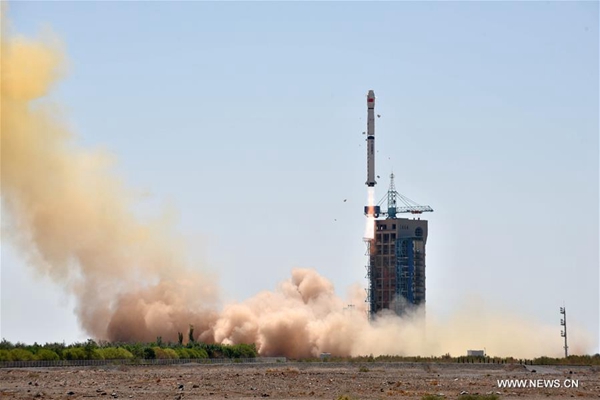China launches first X-ray space telescope
|
A Long March-4B rocket carrying X-ray space telescope to observe black holes, pulsars and gamma-ray bursts blasts off from Jiuquan Satellite Launch Center in northwest China's Gobi Desert, June 15, 2017. [Photo/Xinhua] |
China launched its first X-ray space telescope to observe black holes, pulsars and gamma-ray bursts, via a Long March-4B rocket from Jiuquan Satellite Launch Center in northwest China's Gobi Desert at 11 a.m. Thursday.
The 2.5-tonne Hard X-ray Modulation Telescope (HXMT), dubbed Insight, was sent into an orbit of 550 kilometers above the earth to help scientists better understand the evolution of black holes, and the strong magnetic fields and the interiors of pulsars.
Through the telescope, scientists will also study how to use pulsars for spacecraft navigation, and search for gamma-ray bursts corresponding to gravitational waves.
The result of the wisdom and efforts of several generations of Chinese scientists, Insight is expected to push forward the development of space astronomy and improve space X-ray detection technology in China.
